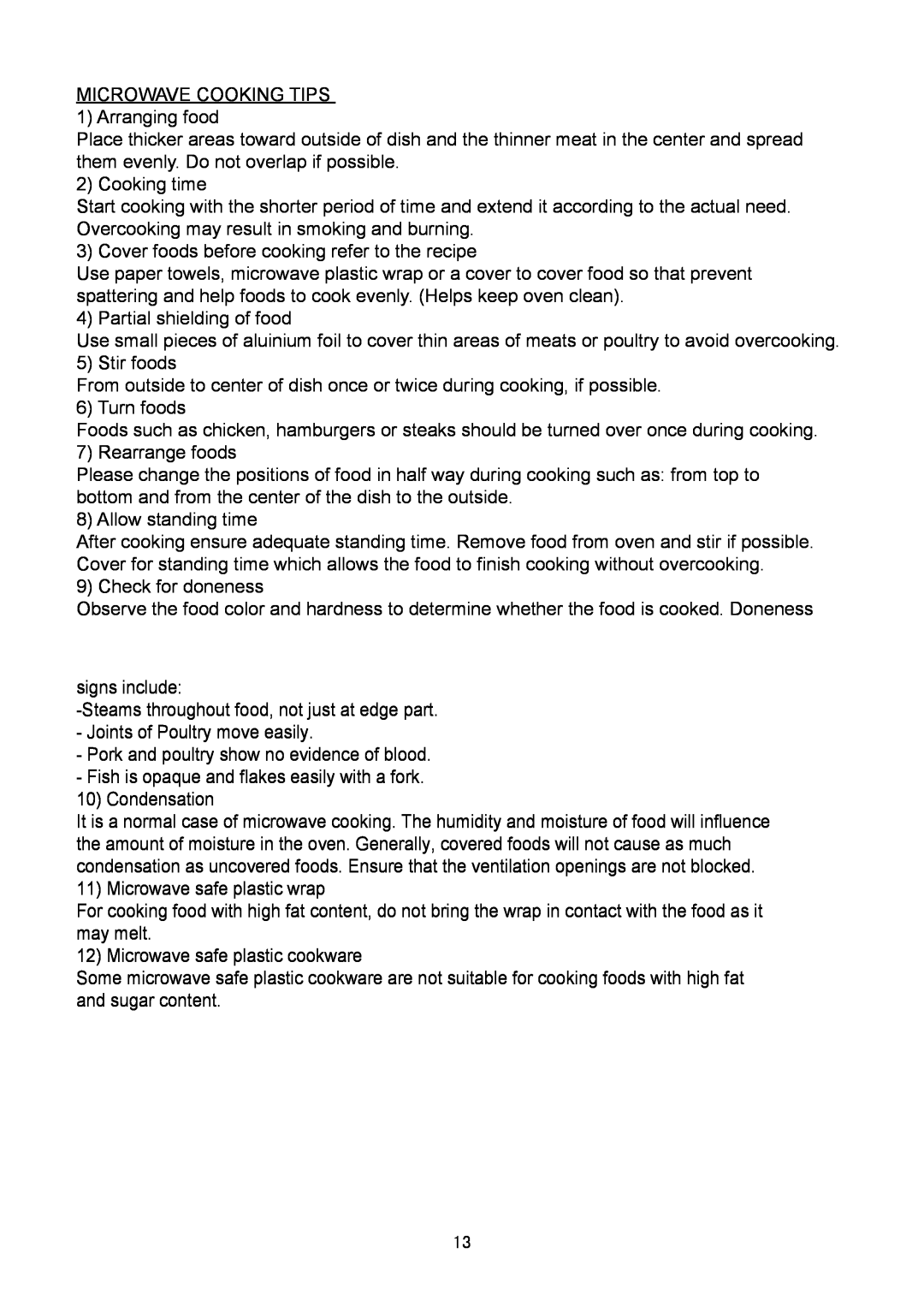MICROWAVE COOKING TIPS 1) Arranging food
Place thicker areas toward outside of dish and the thinner meat in the center and spread them evenly. Do not overlap if possible.
2) Cooking time
Start cooking with the shorter period of time and extend it according to the actual need. Overcooking may result in smoking and burning.
3) Cover foods before cooking refer to the recipe
Use paper towels, microwave plastic wrap or a cover to cover food so that prevent spattering and help foods to cook evenly. (Helps keep oven clean).
4) Partial shielding of food
Use small pieces of aluinium foil to cover thin areas of meats or poultry to avoid overcooking. 5) Stir foods
From outside to center of dish once or twice during cooking, if possible.
6) Turn foods
Foods such as chicken, hamburgers or steaks should be turned over once during cooking. 7) Rearrange foods
Please change the positions of food in half way during cooking such as: from top to bottom and from the center of the dish to the outside.
8) Allow standing time
After cooking ensure adequate standing time. Remove food from oven and stir if possible. Cover for standing time which allows the food to finish cooking without overcooking.
9) Check for doneness
Observe the food color and hardness to determine whether the food is cooked. Doneness
signs include:
-Joints of Poultry move easily.
-Pork and poultry show no evidence of blood.
-Fish is opaque and flakes easily with a fork. 10) Condensation
It is a normal case of microwave cooking. The humidity and moisture of food will influence the amount of moisture in the oven. Generally, covered foods will not cause as much condensation as uncovered foods. Ensure that the ventilation openings are not blocked. 11) Microwave safe plastic wrap
For cooking food with high fat content, do not bring the wrap in contact with the food as it may melt.
12) Microwave safe plastic cookware
Some microwave safe plastic cookware are not suitable for cooking foods with high fat and sugar content.
13
